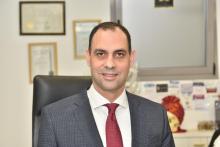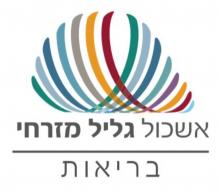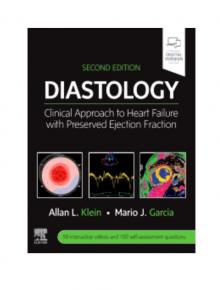Faculty News
Prof. Samer Srouji Appointed IADR Officer
תאריךCongratulations to Prof. Samer Srouji, Chief of Oral and Maxillofacial, Oral Medicine Institute and Head of Bone Regeneration Lab at the Galilee Medical Center affiliate hospital - and Azrieli Faculty member - on his appointment as International Association for Dental Research officer (treasurer).
The IADR, an international organization with local branches, is considered a leader in dental research.
This is the first time that the local chapter will include a Bar-Ilan U. officer. Officers work directly with the global organization regarding matters such as local and international conferences. All Israeli universities have IADR members, and nationally there are 4 officers.
IADR holds an annual dental research conference in Israel and Israel participates in the European as well as international conferences on clinical as well as general research.
Prof. Karl Skorecki, Dean of the Azrieli Faculty of Medicine, personally congratulated Prof. Srouji: "I was informed about this achievement also from other colleagues in Israel. You bring to this position vision as well as accomplishments. This gives a good name to Bar-Ilan University."
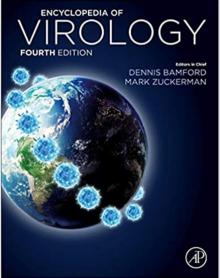
Prof. Michael Edelstein Publishes Chapter in Encyclopedia of Virology, 4th Edition
תאריךProf. Michael Edelstein has published a chapter in the definitive virology textbook, Encyclopedia of Virology 4th edition - "Epidemiology of Human and Animal Viral Diseases." Published by Elsevier, the encyclopedia includes 5 volumes and 3500 pages. Hardcopies will be available in March 2021 (this chapter in the link above).

Prof. Michael Edelstein Awarded Prestigious EU Grant
תאריךThe “Reducing Inequalities in Vaccine Uptake in the European Region - Engaging Underserved communities” (RIVER EU) project is a collaborative project between fourteen academic and public health organizations in ten countries in the EU and Israel.
The 5 year project, with a 3.3 million euro budget from Horizon 2020, the European Union’s Framework Program for Research and Innovation, aims to reduce health systems barriers to vaccination among ethnic, religious or cultural minorities across Europe, specifically focusing on MMR and HPV vaccination in selected underserved communities. Prof. Michael Edelstein will serve as the project’s deputy principal investigator as well as lead for the work package focusing on collecting evidence on health system barriers and enablers among low (underserved communities) and high (positive deviants) uptake communities and on interventions that improve access to vaccination services among underserved communities.
Prof. Edelstein: "There are many institutions involved. It is a very exciting project that will have a positive impact on some of the most vulnerable populations in Europe and beyond, and I am proud that Bar-Ilan U. will make a significant contribution to it. It is also a great opportunity for Bar-Ilan U. and its faculty to create strong academic links with many excellent universities across Europe."
To see Bar-Ilan spokesperson's office announcement, click here.
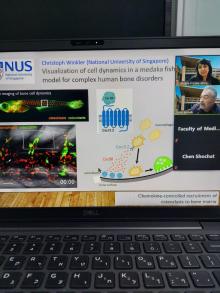
Azrieli Faculty of Medicine Hosts Multidisciplinary International Workshop
תאריךIn early December 2020, the Azrieli Faculty of Medicine conducted an international workshop entitled Mathematics of the MusculoSkeleton: Post-Genome Analysis for Bone Biology.
The workshop included online presentations, discussions and innovative approaches, opportunities, and challenges addressed by Big Data, Artificial Intelligence, and deep machine learning from experts in the field of musculoskeletal (MSK) disease, including osteoporosis, and sarcopenia.
The workshop brought together mathematicians, statisticians, and Big Data experts with clinically oriented researchers and skeletal biologists to discuss foundations and applications of experimental models in the MSK health and diseases. It was organized in order to provide a blueprint for MSK research with an aim of translating discoveries from human studies into new therapies for patients with MSK diseases.
Among the distinguished speakers were Prof. Fernando Rivadeneira, Netherlands; Prof. Jon Tobias, UK; Prof. Bjorn Busse, Germany; Prof. Ralph Müller, Switzerland; Prof. Gustavo Duque, Australia; Prof. Christoph Winkler, Singapore; and Prof. Ching-Lung Cheung, Hong Kong. Participants from the US included Prof. Matthew Harris, Boston Children's Hospital and Harvard University, and Prof. Ron Kwon. Israeli speakers included Prof. Gregory Livshits and Prof. Yankel Gabet from the Sackler Faculty of Medicine, Tel Aviv University; Prof. Yuval Dor, Hebrew University; and Prof. Elazar Zelzer, Weizmann Institute of Science. Trainees, advanced scientists, and students from additional countries, such as Norway and Italy also took part in the workshop.
The workshop was organized by Dr. Milana Frenkel-Morgenstern and Prof. David Karasik. Dr. Gideon Baum (manager of the Frenkel-Morgenstern lab) and Dan Hinenzon (IT manager) assisted in organizing and running the workshop virtually online.
Government Grant Awarded to Advance Public Health Initiatives for the Elderly in the Eastern Galilee
תאריךWe are excited to announce that the Eastern Galilee cluster with the Faculty's leadership and support, was selected as one of seven municipal clusters to be awarded a government grant. This endeavor will implement a regional community social prescription platform that includes volunteer-based services, food security linking farm to table, and educational and recreational activities to advance the health and wellness of the region’s elderly residents. A regional health coordinator to advance the health initiatives in the region will be hired. The cluster will be awarded a 2.1 NIS budget to implement the program over two years.
Upon hearing the news, Prof. Karl Skorecki, Dean of the Faculty of Medicine, said, "This is excecllent news and a tribute to you [Dr. Sivan Spitzer-Shohat] and to the supporting agencies."
The Azrieli Faculty of Medicine joined forces to advance a unique academia-community-municipal network that includes 18 municipalities of the eastern Galilee cluster, Ziv and Poriya hospitals, HMOs, local NGOs and Tel-Hai and Zefat Academic colleges.
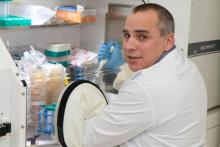
Prof. Omry Koren Wins Prestigious European Research Council (ERC) Grant
תאריךWarmest congratulations to Prof. Omry Koren upon receipt of a prestigious grant from the European Research Council (ERC). Dean of the Faculty, Prof. Karl Skorecki, praised Koren, saying, “This is a great and well-deserved achievement, which will lead to many more discoveries and breakthroughs by Prof. Koren’s group.”
Bar-Ilan University press release can be read here. Jerusalem Post online article can be read here.

Perfect Timing! Mini-course on Covid-19
תאריךWith impeccable timing, a day before the first Pfizer Covid-19 vaccinations landed in Israel, a mini course took place on December 8, 2020 as part of the Infection and Inflammation course given to second year students.
The students were offered the following lectures:
- The disease as caused by the coronavirus, by Dr. Hiba Abuzayyad of the Baruch Padeh Medical Center, Poriya (infectious diseases)
- Patient care and treatment, by Dr. Moshe Matan of the Baruch Padeh Medical Center, Poriya (corona)
- Public health in light of the coronavirus, by Dr. Rami Grifat of the Ziv Medical Center (public health)
- Vaccinations against the coronavirus, by Dr. Ofer Cohen of the Israel Institute for Biological Research in Nes Ziona
- Coronavirus in children, by Prof. Shalom Ben Shimol of the Soroka Medical Center (pediatric infectious diseases)
At the end of the day, a panel discussion was held with students who are in their clinical years of study. They shared their experiences regarding their clinical rotations during the corona pandemic, including insights from those who had themselves fallen ill.
When the End Is Just the Beginning Webinar Series a Success
תאריךMany thanks to Prof. Michael Edelstein, the Azrieli Faculty of Medicine's newest recruit, for arranging an excellent international Webinar series on the Covid-19 vaccine challenge this past November. The series proved to be most timely, interesting, and educational.
Prof. Edelstein, an infectious disease and vaccine epidemiology expert, comes to us from the London School of Hygiene and Tropical Medicine. His areas of expertise at Azrieli are public health and epidemiology.

Congratulations to Our 17 PhD Recipients - Zoom Graduation Last Night (Nov. 25, 2020)
תאריךCongratulations to the new Doctors of Philosophy from the Azrieli Faculty of Medicine. Hard work pays off!
Nehora Amar, PhD
Pooja Anil Shah*, PhD
Efrat Avigad Laron, PhD
Moti Ben Shabat, PhD
Netta Blondheim Shraga, PhD
Shani Carmi, PhD
Sivan Eliyahu, PhD
Shiri Elmedvi Baran, PhD
Natasa Ilic*, PhD
Felix Kaplan, PhD
Nava Kesner, PhD
Nikola Lukicz*, PhD
Dhanoop Manikoth*, PhD
Etedal Morad Khaldy, PhD
Hadas Sibony Benyamini, PhD
Shams Twafra, PhD
Michal Werbner, PhD* International students
Special thanks and appreciation to their advisors.
The Faculty offers doctoral degrees in the biomedical and health sciences.
For pictures, go here.
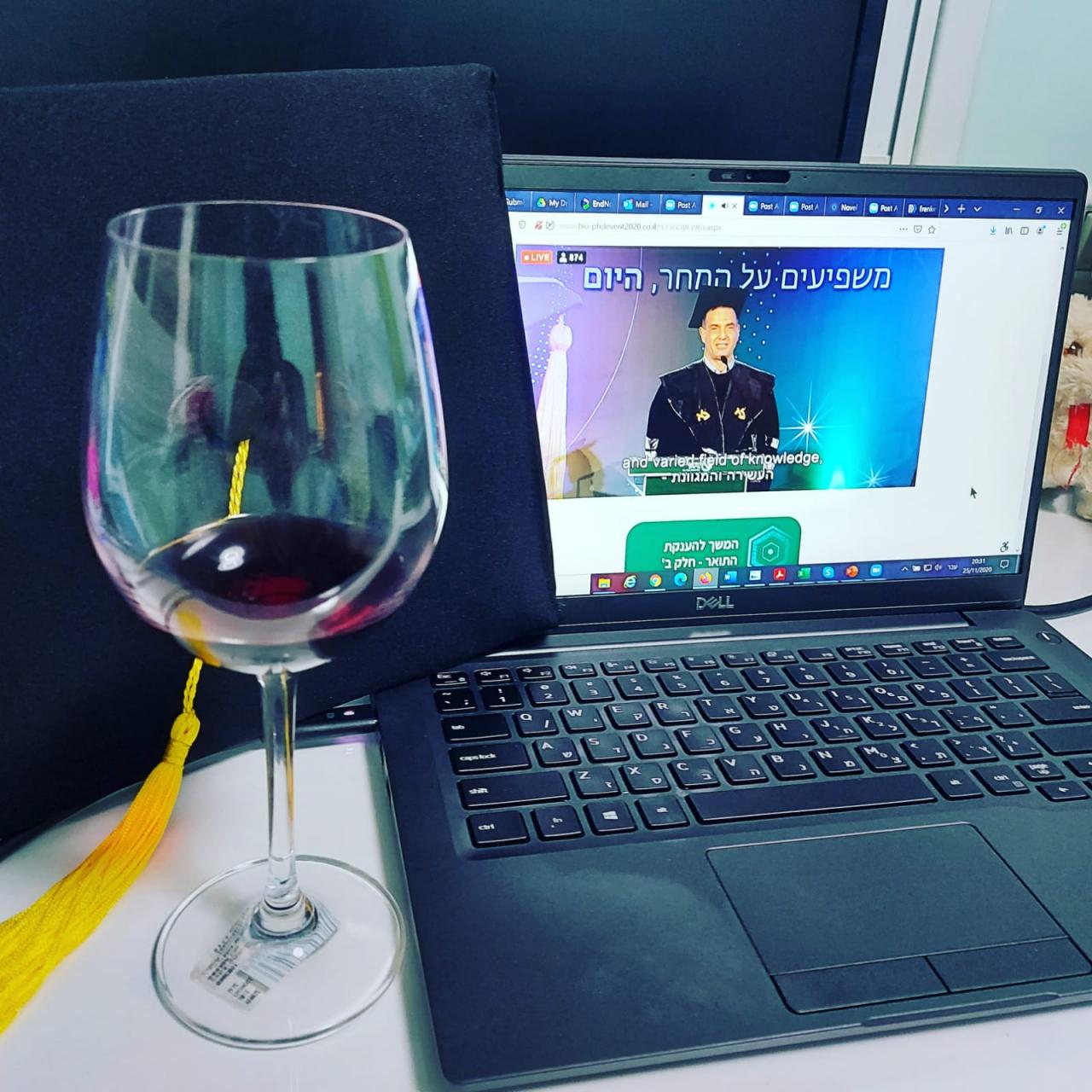
Prof. Shemy Carasso Publishes Chapter in Diastology 2nd Edition: Clinical Approach to Heart Failure with Preserved Ejection Fraction
תאריךCongratulations to Prof. Shemy Carasso, MD, FESC, FASE, Clinical Associate Professor of Medicine and Head, Non-invasive Cardiac Imaging Unit Cardiovascular Division B Padeh Medical Center, Poriya, on publication of his chapter in Diastology 2nd edition. The title of the chapter (25) is "Hypertrophic Cardiomyopathy." The book is available in ClinicalKey.
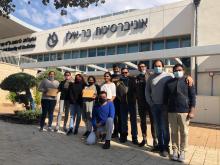
International Students from India Celebrate the Festival of Diwali
תאריךLast week (the week of November 15, 2020) international students from India, from both Bar-Ilan U campuses, Safed and Ramat Gan, celebrated the Diwali Festival together. This Hindi festival celebrates light while banishing darkness. It is customary to decorate with flowers and lights. The campus celebration was of course limited in scope, in keeping with the Coronavirus guidelines, but the light and bright atmosphere was felt, both literally and figuratively. Joyous music could be heard, and students joined in a fun Kahoot! game.
A representative from the Indian Embassy came to BIU to greet the students, and the Safed campus joined in via Zoom.
Students also received boxes of Indian candies, a gift from the Indian Embassy.
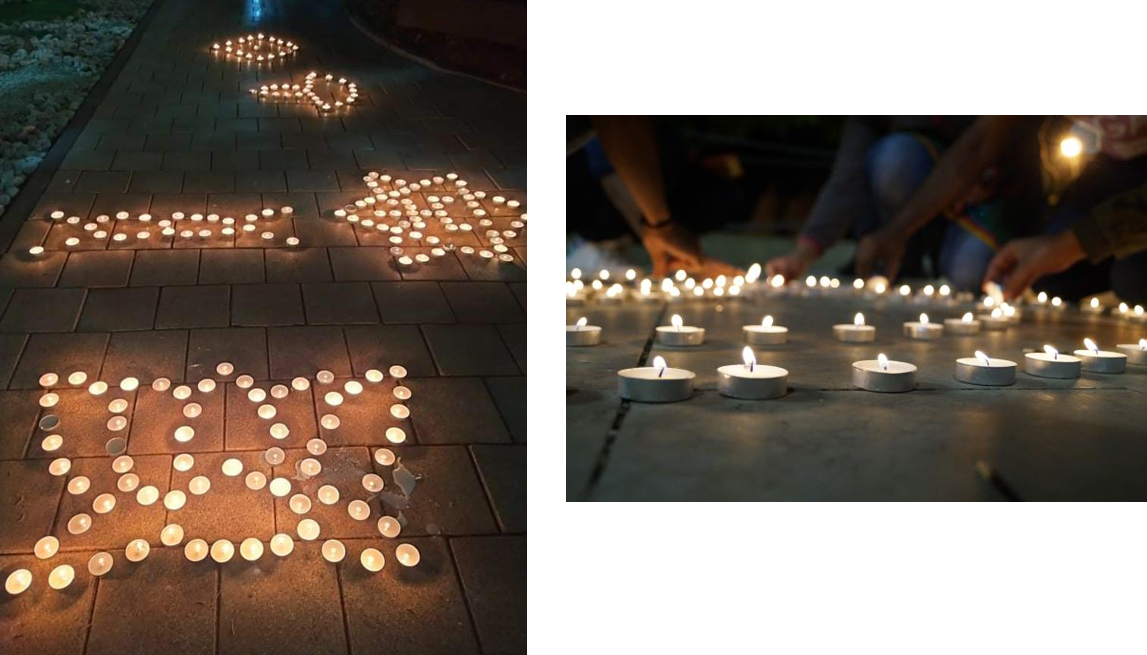
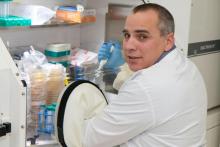
Omry Koren Identified as "Highly Cited Researcher" by Web of Science
תאריךEach year, Clarivate™ identifies the world’s most influential researchers ─ the select few who have been most frequently cited by their peers over the last decade. In 2020, fewer than 6,200, or about 0.1%, of the world's researchers, in 21 research fields and across multiple fields, have earned this exclusive distinction.
Prof. Omry Koren of the Azrieli Faculty of Medicine has been chosen now for the third consecutive year among this elite group recognized for his exceptional research influence, demonstrated by the production of multiple highly-cited papers that rank in the top 1% by citations for field and year in the Web of Science™.
Special congratulations from Prof. Karl Skorecki the Dean: "This is terrific. A sustained record of citation means huge scientific impact of your research."
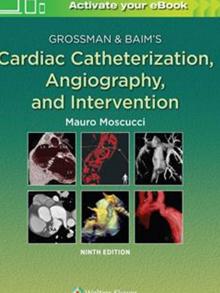
Prof. Arnon Blum Publishes Chapter in Grossman and Baim, Textbook of Interventional Cardiology, 9th edition
תאריךCongratulations to Prof. Arnon Blum (Baruch Padeh Medical Center, Poriya) upon the publication of his chapter (ch. 38) "Cardiac Cell-Based Therapy: Methods of Application and Delivery Systems" in Grossman and Baim's, Textbook of Interventional Cardiology, 9th edition
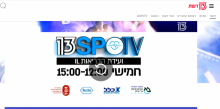
Prof. Karl Skorecki and Dr. Meital Gal-Tanamy Speak at Reshet13 Health Conference Live
תאריךThe Dean of the Azrieli Faculty of Medicine and researcher Dr. Meital Gal-Tanamy were panelists at the live Reshet13 (TV) Health Conference, held on TV and the Web, on Thursday November 5, 2020 from 12-3 PM. The focus was, of course, Covid-19. The conference (in Hebrew) can be viewed here.
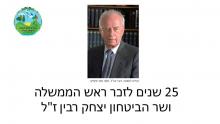
Yitzhak Rabin Memorial Day: 25th Anniversary of Assassination of Prime Minister and Minister of Defense
תאריךThe Azrieli Faculty of Medicine Student Union commemorated Rabin Memorial Day on Thursday October 29, 2020, 11 Heshvan 5781. Yitzhak Rabin was assassinated 25 years ago, on November 4, 1995, at the end of a Saturday night rally in Tel Aviv. The theme of the rally was "Yes to Peace, No to Violence."
The day is an opportunity for deep introspection, and to discuss peace and tolerance with others.
At 10:00 a Zoom ceremony was held, attended by faculty as well as medical and MSc/PhD students. In addition, the Student Union uploaded various posts to its Facebook page.
The Student Union thanks all who joined and shared in this emotional day. Special thanks to Prof. Eric Shinwell, Associate Dean Medical Education, for his thoughtful words.



